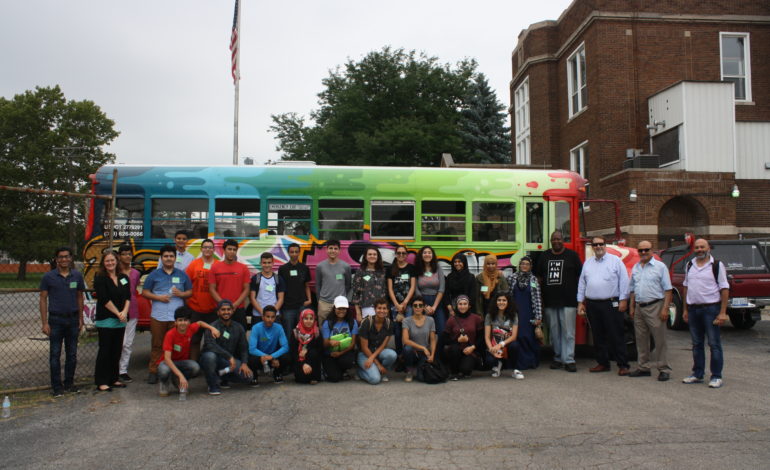DEARBORN — The Environmental Health Research-to-Action (EHRA) project under Healthy Dearborn is the first step in a long-term community-academic partnership to address environmental health disparities experienced by residents in Dearborn’s Southend, a predominantly Arab American community. This program, which ran from July 23 to August 1, is usually open for high school students who attend a school in Dearborn.
The Detroit Metropolitan Region is home to more than 400,000 Arab Americans, with the densest population in Dearborn. Dearborn’s Southend experiences relatively high air pollution and related health risks that have been reported through multiple data sources via EPA’s EJScreen tool (EPA, 2017).
Several community-based organizations have identified the following aims as a priority for addressing health concerns by synthesizing existing research, by developing youth capacity in a range of skills in environmental health and policy advocacy and by establishing a set of short and long-term actions developed by Dearborn’s Southend community.
“Two years ago, we asked community members and residents about the priority health issues that were facing their community and issues that would prevent kids from being active.” – Sara Gleicher, Healthy Dearborn project manager
With support from leaders in the city of Dearborn and Dearborn Public Schools, in partnership with Beaumont Health’s Healthy Dearborn coalition and the University of Michigan-Dearborn’s Departments of Health and Human Services and Behavioral Sciences, the EHRA program was funded through a university grant in collaboration with the Healthy Dearborn Initiative, allowing 20 students to attend the free, six-day workshop with a paid stipend.
Healthy Dearborn is a robust coalition of more than 200 community residents, businesses, employees and elected and civic leaders. It encompasses many programs, including EHRA, and its mission is to create valuable opportunities for people in Dearborn to practice healthy lifestyles by enriching their minds, nurturing their bodies and revitalizing their spirit.
Developed by two U of M-Dearborn faculty members, Natalie Sampson, Ph.D. and Carmel Price, Ph.D., in 2016, EHRA sustainably increases community-wide understanding of exposure and health patterns. It’s the first attempt to really take data and use it to change conditions and policies to better impact the community residents.
“Two years ago, we asked community members and residents about the priority health issues that were facing their community and issues that would prevent kids from being active,” Sara Gleicher, project manager of Healthy Dearborn, told The AANews.
She said people in the Southend community came up with three priority health issues: Air pollution, slag trucks driving through the neighborhoods and not enough kids being able to play outside because of the air quality.
“We had a follow-up meeting at Salina Elementary School and at this meeting there were 20-25 women with full-length burqas who spoke Arabic,” Gleicher said, adding that, fortunately, an intern from U of M-Dearborn was present who could translate for them.
“They were passionate about the impact of pollution on their lives,” Gleicher said.






Leave a Reply